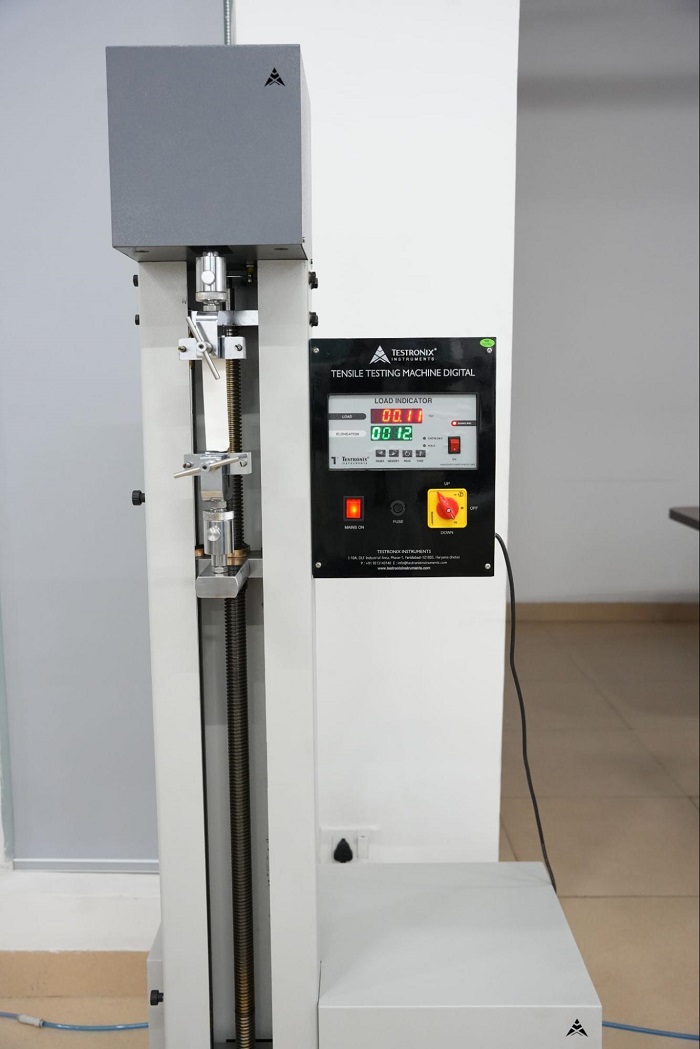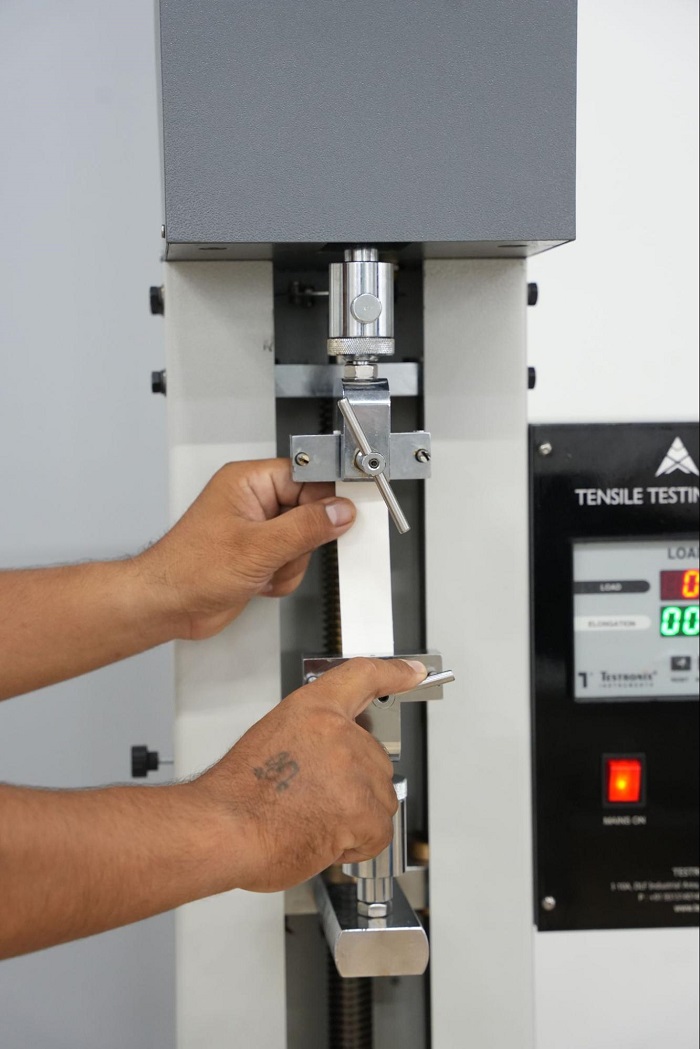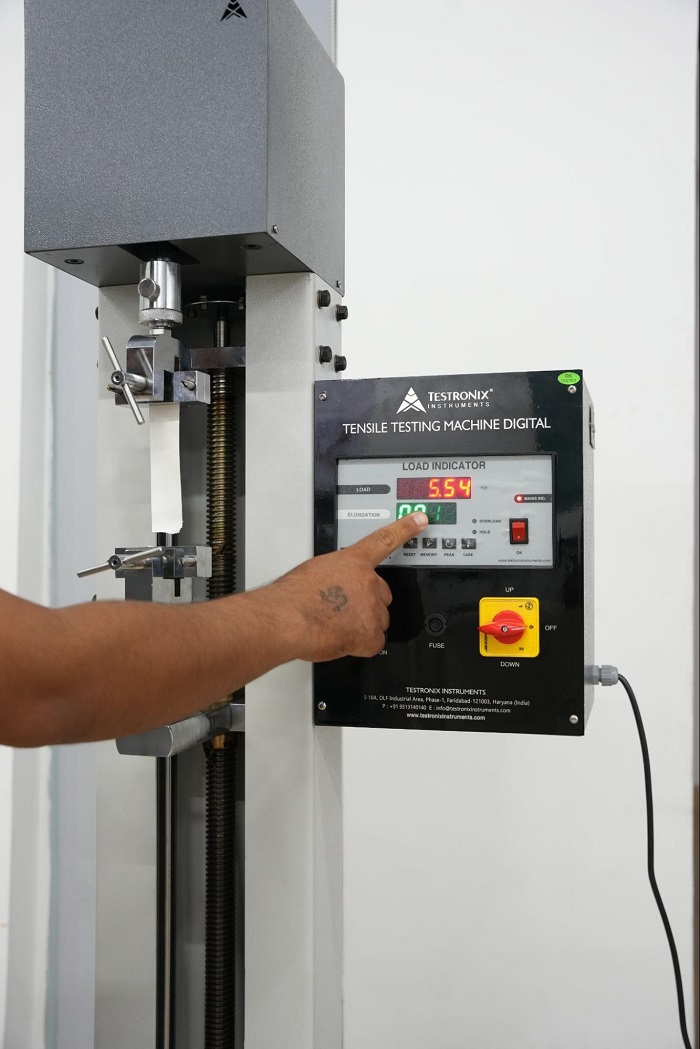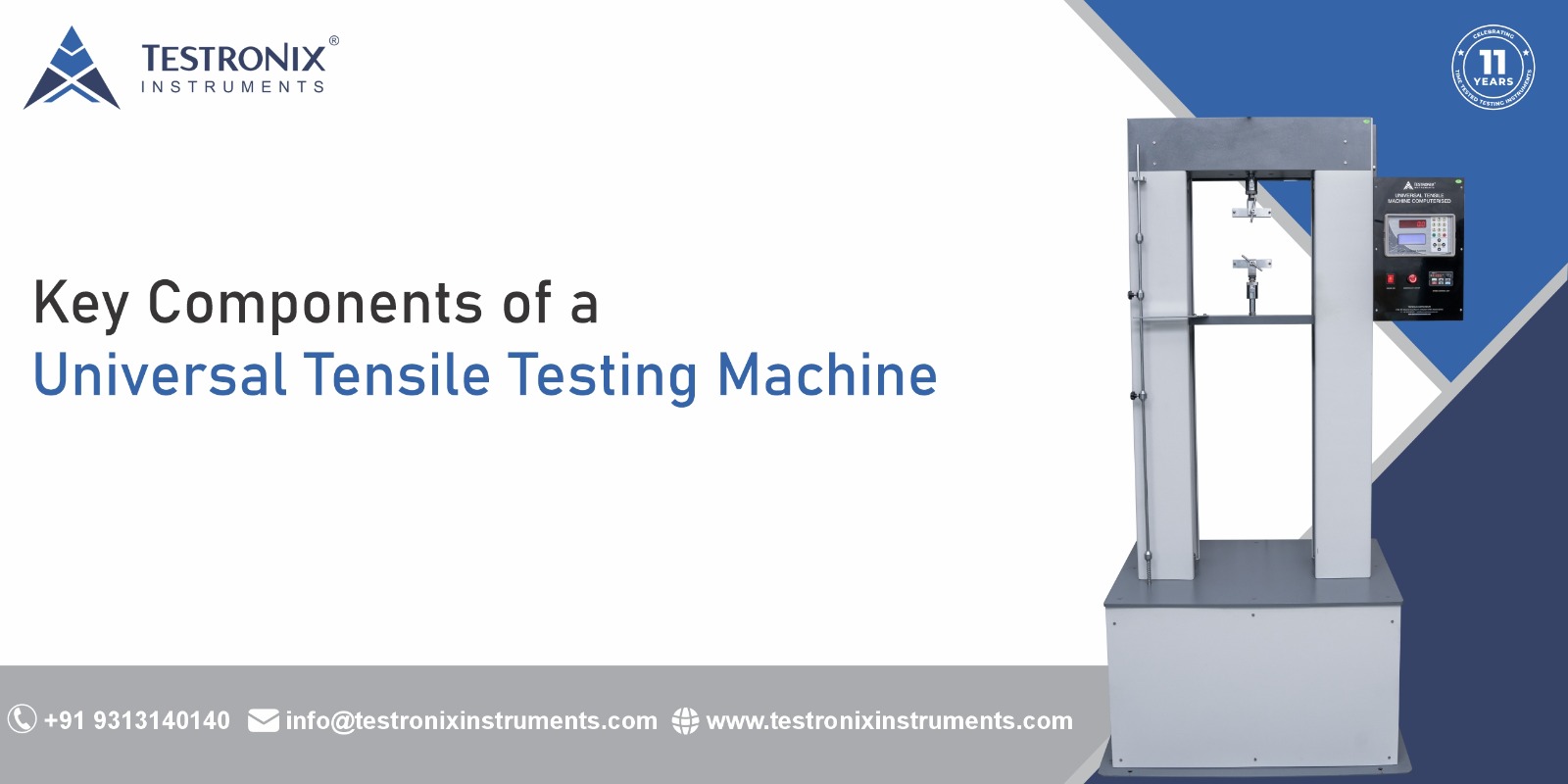Tensile testing is a very critical process in determining the tensile strength and durability of the materials, it deals with product development and quality control. Whether in automobile, aerospace, construction, or consumer goods markets, tensile testing ensures that materials used in these sectors can face the forces they will experience in application.
Why should you entrust the outcome with a reliable solution like Testronix’s Tensile Testers in getting the right and reliable results? In this blog, all your questions will be answered.
What is Tensile Testing?
Tensile testing can also be termed tensile strength testing. It forms part of mechanical tests that, in general, determine the response of a material subjected to tensile or drawing forces. The tensile test stretches an illustrative material apart to capture a number of mechanical properties such as stress, strain, and elongation.
Tensile testing can be applied in many kinds of sectors or industries; there are those related to construction, automobiles, aeronautics, packaging, and textiles. It can likewise be applied in testing metals, polymers, plastics, rubbers, and composite materials.
Pliable testing can be utilized in a few sorts of areas or businesses, some of which are development, auto, aviation, bundling, and materials. Likewise, it very well may be applied to metals, polymers, plastics, rubbers, and composite materials to assess their properties.

Why Testronix? Expertise and Excellence in Testing
Because tensile testing involves experience, precision, and reliability, businesses worldwide look for trusted options. Here lies the end and Testronix’s solutions stand first with experience, precision, and reliability.
Experience & Expertise: Testronix is an industry leader in manufacturing high-quality tensile testing equipment with over 11+ years of experience in providing testing solutions to global industries. Varying requirements of industries like automotive, pharmaceuticals, and textiles are understood, and customized solutions are presented according to their needs. Testronix’s tensile testing machines are precision-built for accuracy, durability, and ease of use, providing trouble-free testing procedures for your team.
How Does Tensile Testing Work?
Here is step-by-step how tensile testing takes place:
Step 1: Sample Preparation: The material is conditioned into specific dimensions and size; sometimes up to international requirements like by ASTM and ISO

Step 2: Measurement Setup: The specimen is mounted in the testing machine and the testing machine is calibrated so that the machine can apply the target tension at a controlled rate.
Step 3: Force Application: The tensile testing machine starts to apply the pulling force steadily and the material starts stretching with stress getting applied.
Step 4: Data Collection: Now that the experiment begins, sensors and extensometers start gauging the deformation (strain) experienced by the material during the act of drawing or stretching it.
Step 5: Results Analysis: The results that were produced are analyzed to know yield strength, tensile strength, elongation, modulus of elasticity and a lot more which the material holds.

More information about the material's behavior under stresses is gained from the results of a tensile test, which in turn determines its usage for specific applications.
Why Tensile Tests?
Tensile testing is considered pretty important for various reasons that lend themselves to better product development, performance, as well as safety.
Maintains Quality and Reliability of Material: Tensile testing identifies weak points in materials, thus the manufacturer can understand which material would be best used for a specific application. It ensures final products are secure, long-lasting, and perform well under stress.
Product Performance and Safety: Many industries that produce automotive products or aerospace products correlate the material performance in tensile tests to that in consumer safety cases. When such tensile tests are not conducted correctly, defective materials may lead to a tragic failure in the product.
Quality control and regulatory compliance: Quality control in the manufacturing process entails tensile testing. Through tensile testing, companies ensure consistency in quality, meeting international regulations. Materials therefore are checked according to set standards without risking costly recalls.
Tensile testing also predicts how the material will behave over time. Manufacturers can predict the length of time materials will last by simulating wear and tear on them, so they are able to make appropriate design decisions and material choices in their products.
Applications:
Automotive: Tests parts, such as seatbelts and fasteners for safety and durability at stress.
Construction: Checks structural materials, like steel or concrete, for load-bearing purposes in buildings and bridges.
Packaging: Tests the strength and durability of packaging materials to resist the toughest transport conditions.
Textiles: Tests material strength and elasticity along with seams for sportswear and other technical textiles.
Medical Devices: Offers assurance on the ruggedness of implants and prosthetics to withstand forces in the body.
Plastic and Polymer Testing: Measures tensile strength for films and molded parts, especially in applications in packaging and construction.
And many more.
FAQs
What kind of materials can be tested with the help of tensile testing?
The flexibility of tensile testing is to an extent that it could be applied to many materials. Such materials incorporate metals: steel, aluminum, plastics, polymers, composites, elastic, and materials. Tensile testing within all these industries assesses the material for different applications- for example, in automotive parts, packaging, or structural components.
Why is tensile testing significant in ensuring product safety?
This test determines yield strength and ultimate tensile strength of the materials. Knowing this and understanding their behavior under tensile stress and strain, manufacturers can assure that their products are safe for use in everyday life, thereby avoiding a possible failure that may lead to accidents or other injuries.
How does tensile testing help in the product development process?
Tensile testing helps engineers select the right material that can possess the desired strength and flexibility during the design phase to choose the best material. It also helps increase the already designed products' durability and reliability using quality data regarding performance under stress.
For more information about tensile testing or any of our testing solutions, contact the team of experts working here at Testronix.






